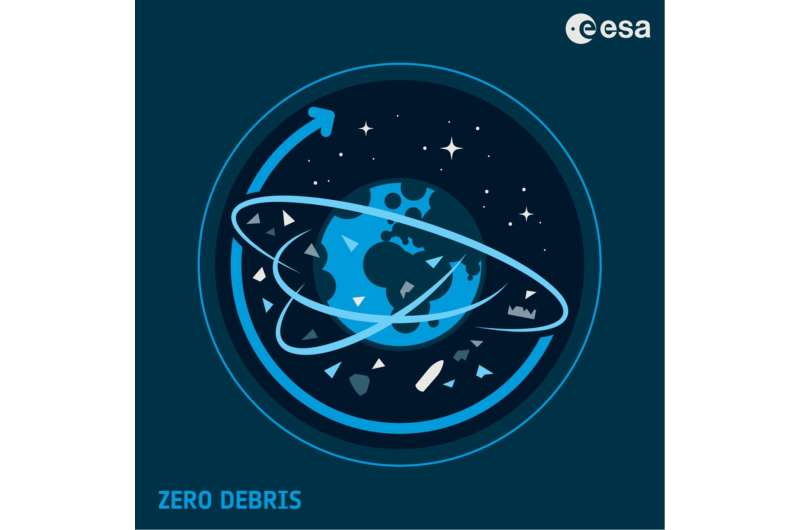This article has been reviewed according to Science X's editorial process and policies. Editors have highlighted the following attributes while ensuring the content's credibility:
fact-checked
trusted source
proofread
Twelve countries sign the Zero Debris Charter

Twelve nations have signed the Zero Debris Charter at the ESA/EU Space Council today, solidifying their commitment to the long-term sustainability of human activities in Earth orbit. In addition to the 12 countries, the European Space Agency also signed the Zero Debris Charter as an International Organization (IGO).
The Zero Debris Charter is a world-leading effort to become debris neutral in space by 2030 that was unveiled at the ESA Space Summit in Seville meeting in November 2023.
It is the first time that countries have subscribed at national level, boosting Europe as a leader in clean space while demonstrating widespread acceptance of the charter. Austria, Belgium, Cyprus, Estonia, Germany, Lithuania, Poland, Portugal, Romania, Slovakia, Sweden and the United Kingdom have all pledged to adhere to the charter.
More than 100 organizations have already promised to sign the community-led endeavor in the coming months.
"The Zero Debris Charter signals Europe's unwavering commitment to be a global leader on space debris mitigation and remediation, fostering collective action of a large community of space actors from all around the world," says Quentin Verspieren, Protect Accelerator and Space Safety Program Coordinator at ESA. "The impact of the promise made today by these twelve countries on the sustainability of our future activities in space will be immense."
"ESA has committed to a Zero Debris approach, driving a comprehensive internal transformation towards more sustainable practices," says Holger Krag, Head of Space Safety at ESA. "As part of its efforts ESA has facilitated the community-led development of the Zero Debris Charter, a source of inspiration uniting many of our partners around the world behind a common goal."
ESA estimates that there are currently more than one million pieces of space debris larger than one cm in Earth orbit. Each of these objects is capable of causing catastrophic damage to space assets. If quick and decisive action is not taken to improve the sustainability of space activities, the exponential growth of this debris population will pose an ever-increasing hazard to satellites and astronauts and could render some orbits entirely unusable.
At the Ministerial Conference of 2022, ESA was encouraged by its Member States to implement "a Zero Debris approach for its missions; and to encourage partners and other actors to pursue similar paths, thereby collectively putting Europe at the forefront of sustainability on Earth and in space, while preserving the competitiveness of its industry."
ESA's Zero Debris approach is the agency's large-scale revision of its internal space debris mitigation requirements to become debris-neutral by 2030. The approach will rely on debris mitigation and remediation technology developed in ESA's Space Safety Program.
The Zero Debris Charter is a broader community-driven and community-building initiative for the global space community. Facilitated by ESA's "Protection of Space Assets" Accelerator and collaboratively developed by more than 40 space actors, the Charter contains both high-level guiding principles and ambitious, jointly defined targets to enable the space community to achieve the goal of Zero Debris.
Since the launch of the Charter at ESA's Space Summit in Seville, Spain, in November 2023, more than 100 organizations from around the world, including national space agencies, leading satellite manufacturers, space start-ups and astronomical societies, have confirmed their intent to sign.
The first industry and academic partners as well as NGOs are expected to sign the Zero Debris Charter at ILA Berlin air show on 6 June.
Provided by European Space Agency




















